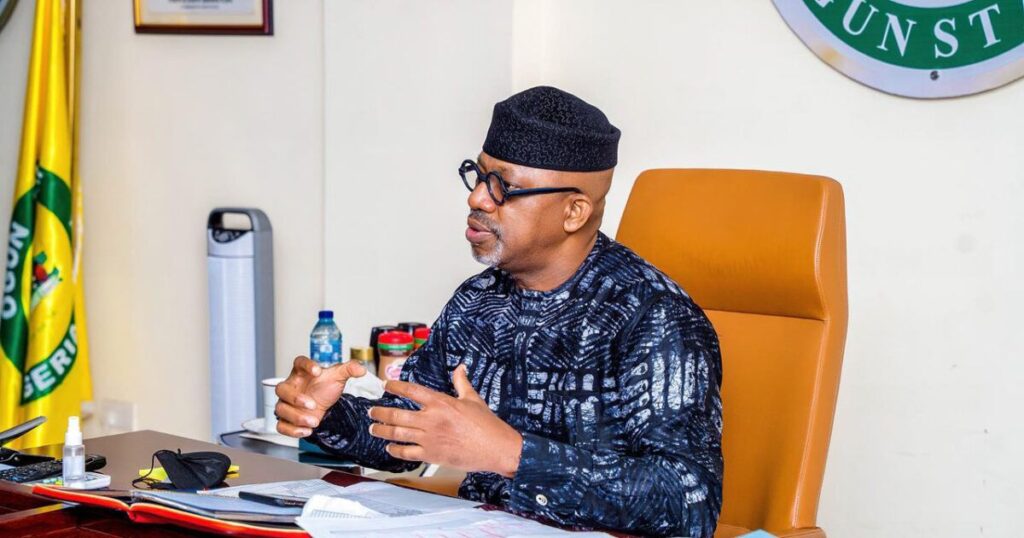Ogun State Governor, Prince Dapo Abiodun, on Tuesday declared that tackling poverty and driving national development must be a shared responsibility between the government and it’s people.
This was as he urged faith-based organisations, private sector, and individuals to complement government efforts at all levels.
Governor Abiodin made this remark while speaking at the 12th Annual Public Lecture of The Foursquare Gospel Church Nigeria tagged, “Poverty Alleviation, Economic Development and Stability of the Nigerian Economy.”
The Governor, who double as the Chairman of the programme, noted that the complexity of governance makes it impossible for the government alone to shoulder the burden of development.
Abiodun lauded the Foursquare Gospel Church for extending its impact “Beyond the pulpit” by establishing schools, hospitals, humanitarian outreaches, and empowerment initiatives, adding that such efforts had transformed numerous lives.
He said, “The burden of governance cannot be shouldered by government alone, and the church has effectively demonstrated this belief through its initiatives.
READ ALSO
“The problem of poverty requires economic stability which must be anchored on inclusive growth where opportunities are extended to all citizens, especially the vulnerable.
“Economic development and stability are two sides of the coin. Without stability, the economy is short-lived. Without development, poverty persists.
“As leaders, whether in the government, church or private sector, we must collaborate to break the cycle because poverty is not just an economic statistic, it is a human reality. We must care for the vulnerable.”
In his welcome address, the General Overseer of Foursquare Gospel Church Nigeria, Rev. Sam Aboyeji, emphasised that no nation could attain sustainable development and stability without a deliberate commitment to addressing poverty.
He said, “Poverty is one of the greatest challenges confronting Nigerians today, and it can only be removed or minimised through a collective battle by government, faith-based organisations, committed parastatals, and individuals.”
Rev. Aboyeji explained that with more than 70 years of continuous presence in Nigeria, Foursquare Gospel Church saw it as a “sacred duty” to contribute to national development, hence its dedication to the annual lecture as a forum for intellectual engagement and policy dialogue.
In his keynote address, Senior Fellow and Associate Professor at Lagos Business School, Dr. Doyin Salami, underscored the fragility of the Nigerian economy, warning that the current 3.2 per cent growth rate was inadequate to reduce poverty.
He emphasised that the country would require sustained growth of at least 6.5 per cent annually over the next decade to achieve meaningful progress.
“Recent data shows that increases in investment in Nigeria are not strong enough to stimulate growth. We must avoid the mistakes of the past and ensure that our investments are the kind that stimulate, support and drive development,” Salami said.
He noted that while Nigeria ranked ahead of China in poverty indices as far back as 1992, China had reversed its fortunes by 1996, leaving Nigeria trailing.
He further cautioned that the country’s overdependence on the services sector, at the expense of industrial growth, was accelerating de-industrialisation and weakening prospects for sustainable economic progress.















